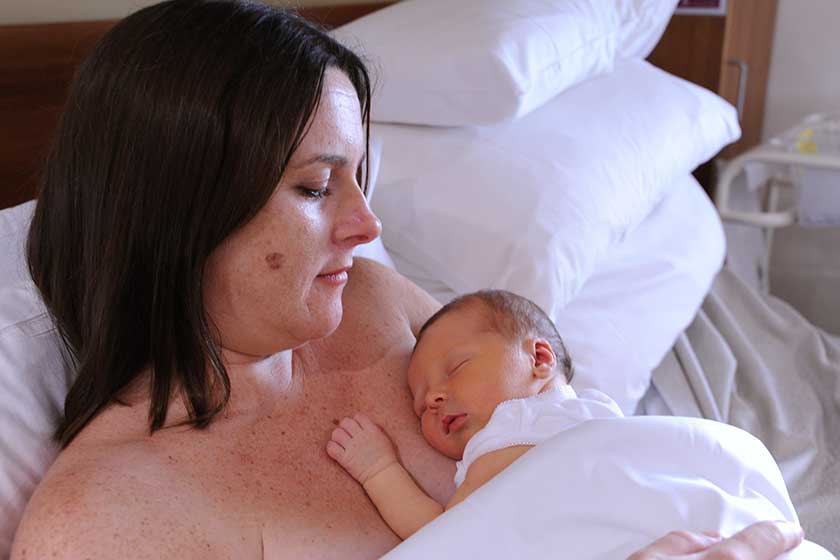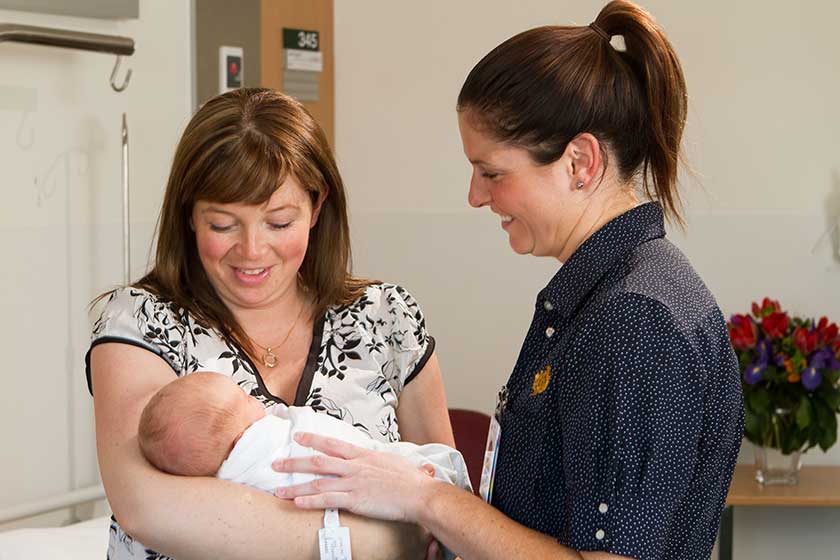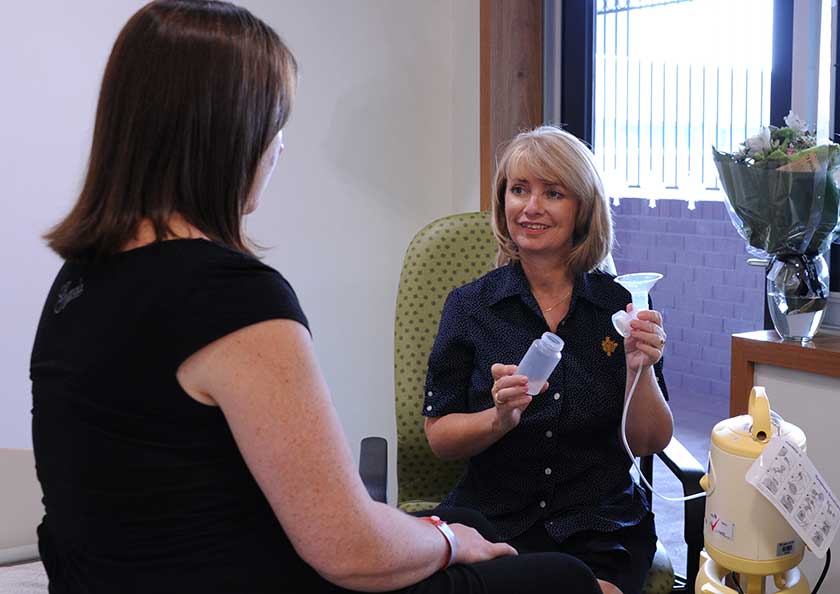The first step – skin-on-skin time
Soon after birth, if you and baby are both well, your baby is placed on your chest for some skin-to-skin time.
We try to keep your baby with you after birth to help the natural reflexes built into your baby to start the breastfeeding process.
When your baby is calm and alert, they start to follow their natural instinct to find the breast.
Step two – your baby starts to get hungry
The first sign that your baby is hungry is what we call “mouthing”, opening and closing their mouth.
Once on your chest, your baby may begin to move their head from side–to-side looking for something to latch onto.
They may bob their head and try to get a glimpse of you. Then, by continuing this movement, they slowly make their way from between your breasts to the breast itself and begin licking the nipple.
Step three - attachment
Your baby’s rooting and sucking reflexes are fully developed from 36 weeks, and this helps them to attach.
Premature babies may have a weak or immature suck and get tired quickly. Your midwife will help you if you have any problems.
Once they latch on and begin to suck it may feel a little strange, but you should not experience any continual pain after the initial few sucks. Usually pain settles once your baby is well attached and sucking regularly.
Step four – keep trying
If your baby hasn’t attached correctly the first time or you can’t feed initially, don’t worry. Keep trying and guide your baby with help from your midwife.
When attachment is successful, your baby will feed until they are satisfied.
How long should the first breastfeed take?
Sometimes your baby’s first feed happens while you are still in the operating theatre or birth suite.
The first feed is a special time for you and your baby to begin to get to know each other and can take up to an hour to complete.
Your midwife is available to offer you help and support throughout the first feed, helping you establish correct attachment.
Your baby’s next feed
After their first feed, your baby may not be interested in feeding again for several hours, but you should offer skin-to-skin time and a feed every three hours.
Let your baby’s cues guide you here, as long periods of sleep followed by a period of frequent feeding is normal for a newborn.
In their first 24 hours, your baby may feed seven to 12 times. But this varies from baby to baby.
Frequent feeds in the first few days help your baby develop good attachment and decrease engorgement, although your milk supply will increase the more often your baby takes a feed.
And remember demand for milk will usually be matched by your milk supplies.
Quick tips for breastfeeding success
First steps:
- Ensure your baby is not wrapped
- Place your baby on your chest, facing you with their spine in a straight line
- Their chin should be forward and buried in your breast
- Your baby’s mouth should be wide open with the lower lip pointing outwards
- Your baby needs to have a mouthful of nipple, areola and breast tissue.
When do you know if you have breastfeeding right?
Your baby has attached correctly when:
- Breastfeeding is comfortable and pain free
- Your nipple retains its normal shape after you baby detaches
- Your baby begins with short rapid sucks that become long and drawn out and swallowing may be heard
- They are satisfied after a period of suckling
- Your baby will maintain healthy weight gain and produce plenty of wet nappies.
How to know when breastfeeding isn’t going to plan?
- You may experience pain in your breast or nipple after the first few sucks
- Your nipple may be an odd shape once your baby detaches
- Your baby’s cheeks may dimple while suckling
- Your baby makes clicking or slurping sounds and milk may leak from their mouth
- Your baby may fall asleep during a feed due to boredom or lack of energy
- Feeds may take longer than usual
- Your baby may demand feeds more frequently
- Healthy weight gain may slow or your baby may lose weight
- There will be fewer wet nappies
Help is available
Breastfeeding is difficult to master and can take practice. It is also an emotional experience.
Contact your midwife, lactation consultant or your local child health nurse for advice.












